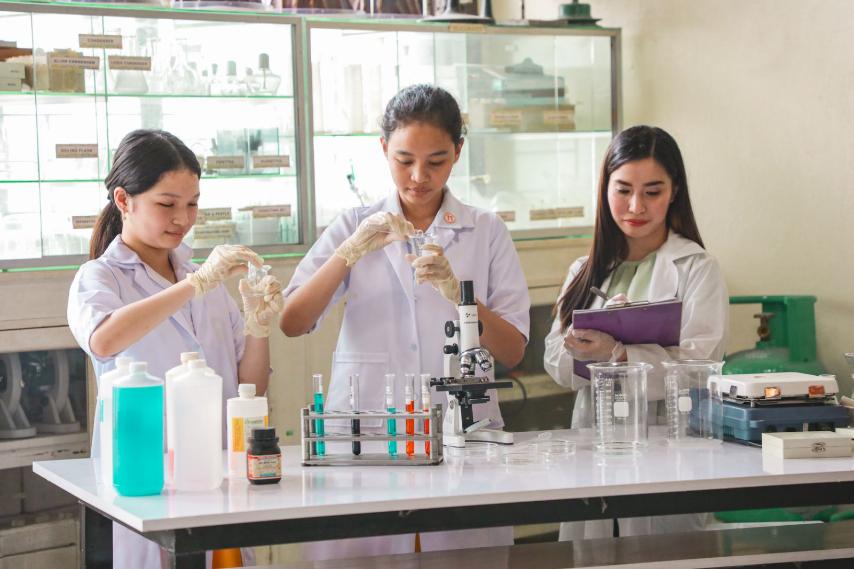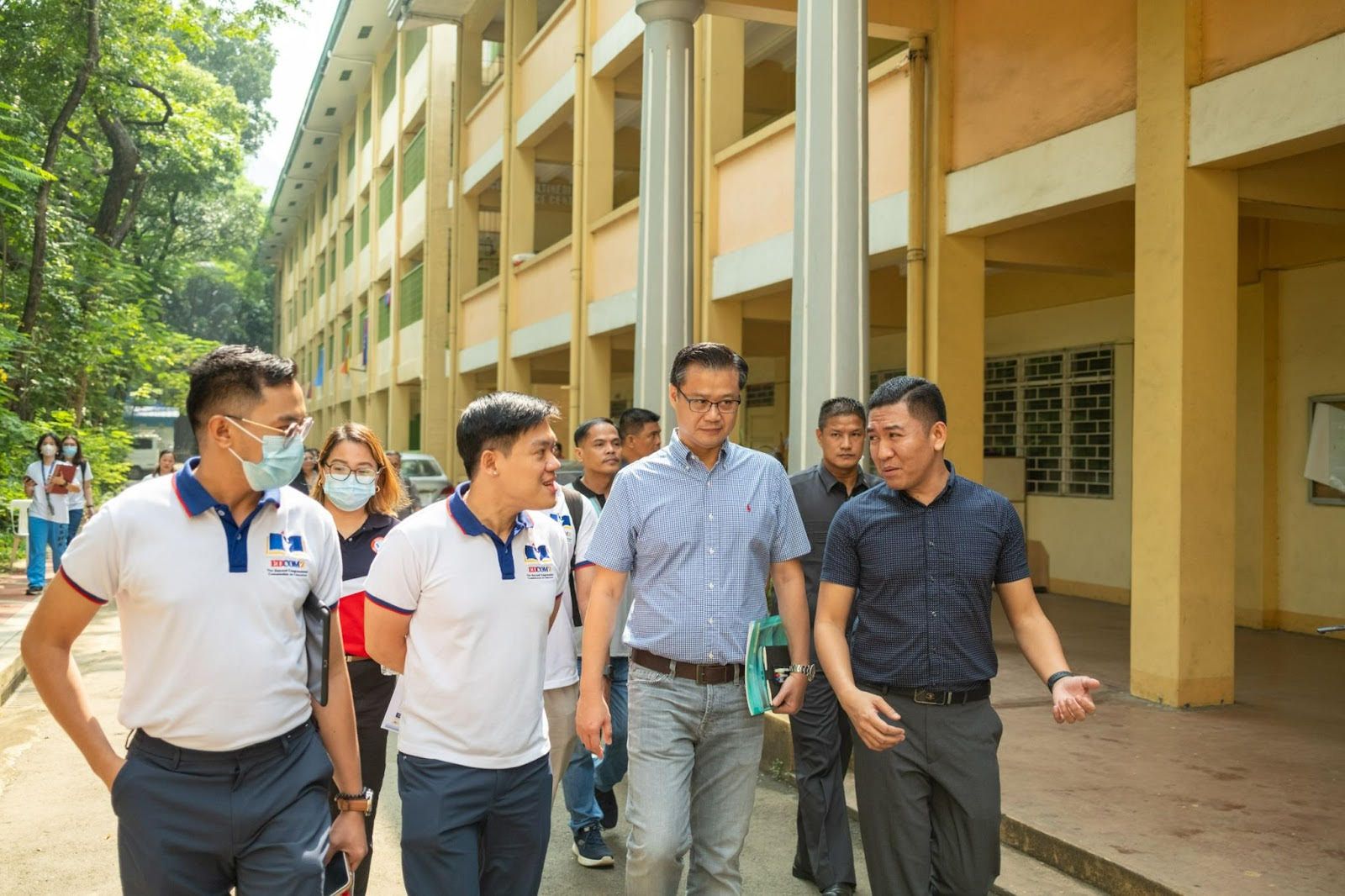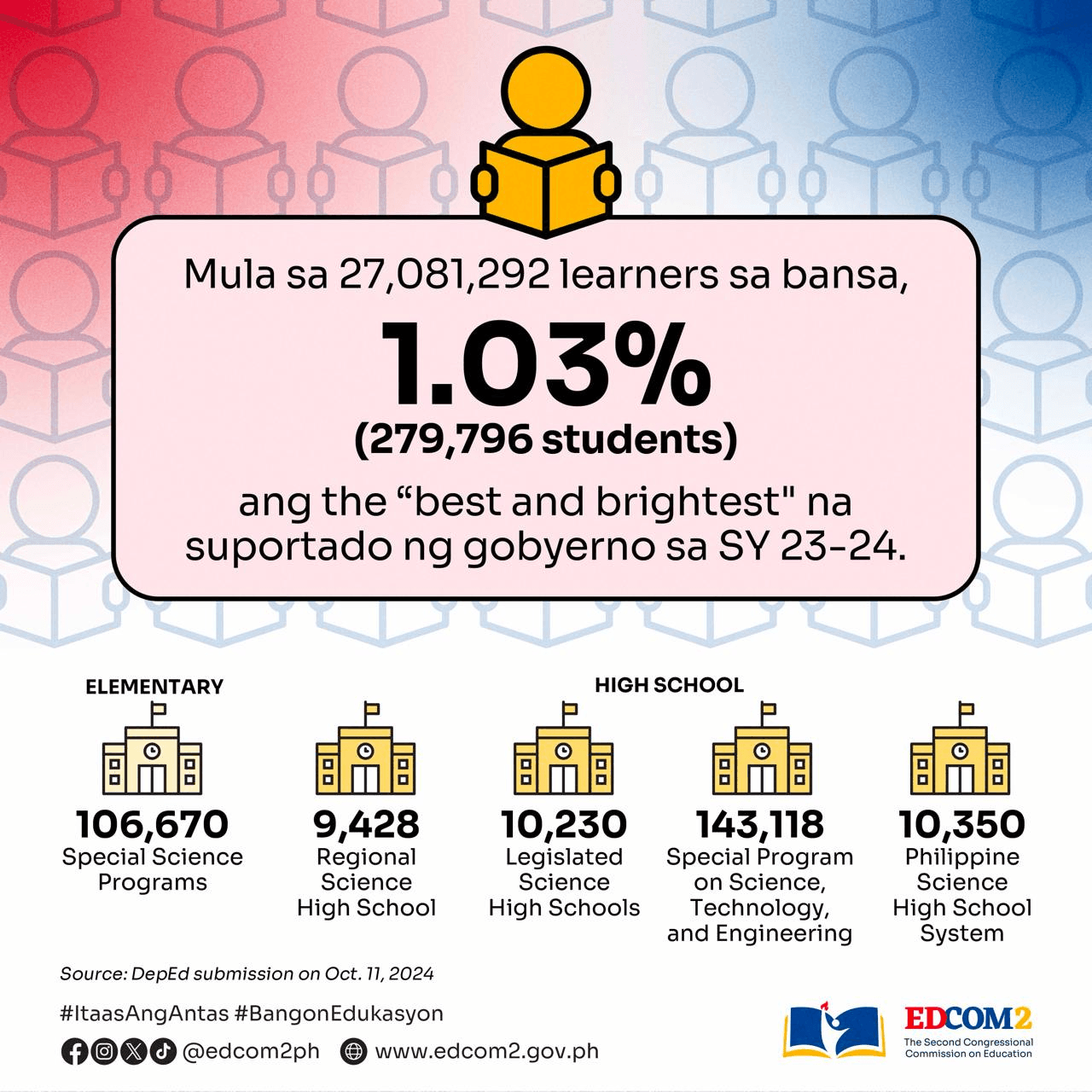Only 1% of 'best and brightest' students benefit from government programs, findings reveal
Findings from the Second Congressional Commission on Education (EDCOM 2) revealed that government programs currently support only one percent of the country’s "best and brightest" students.

In a statement issued on Saturday, Oct. 12, EDCOM 2 highlighted that gifted and talented Filipino learners in the sciences are currently supported by the Philippine High School System under the Department of Science and Technology (DOST), as well as by Regional and Provincial Science High Schools and Special Science Programs in public elementary and secondary schools overseen by the Department of Education (DepEd).
“However, even when combined, data shows that the government supports only 1.03% out of 27,081,292 learners in the country,” EDCOM 2 noted.
A need for a national strategy
On Oct. 11, EDCOM 2 visited various science high schools to assess the government’s current support for the country's “best and brightest” students.
“I think we really need to think through a national strategy for developing the best and the brightest,” EDCOM 2 Executive Director Dr. Karol Mark Yee said during the site visit and discussion with the Quezon City Science High School (QCSHS) and Philippine Science High School (PSHS).
“Even if we need to just add one percent, or point-five percent per year, I think we need to act. It’s high time for us to begin that discussion,” he added.

The site visit was followed by a presentation from the DepEd on their Special Science Programs in Elementary and Secondary. A roundtable discussion at the University of the Philippines (UP) National Institute for Science and Mathematics Education also followed.
In attendance were EDCOM 2 Co-Chairpersons Sen. Win Gatchalian and Rep. Roman Romulo, UP President Angelo Jimenez, EDCOM 2 Standing Committee Members Dr. Ester Ogena, Elvin Uy, and Fr. Lawrence Llona. Also in attendance were key officials from the DepEd and UP.
Need for better support
EDCOM 2 observed that countries vary in their focus on supporting specific learner groups. For instance, China and South Korea concentrate on their top three percent of students, whereas in Australia and Europe, this support can extend to the top 10%.
“In the Philippines, this means supporting an additional 533,502 to 2.43 million learners,” EDCOM 2 said.
Romulo then urged DepEd to take a look at science programs and expand that with other government agencies. “[I hope we can] increase this support to five percent of students in the country,” he said.
Yee explained that while concerned authorities are fixing the foundations for the rest of the system, the data shows “hundreds of thousands of learners with possibly unrealized potential that could be supported better.”
EDCOM 2 noted that findings from PISA 2018 reaffirmed this, showing that two science high schools—Pasig City Science High School and the Regional Science High School for Region VI—scored higher than the OECD average.
Meanwhile, Philippine Science High School Executive Director Dr. Ronnalee Orteza shared that they have had to turn away many qualified students due to limited slots in certain regions.
“Based on our data, we proposed school expansion of the Philippine Science High School because we observed that we have students who are supposed to be in Region 4A, specifically from Laguna and Batangas, but we have a cutoff for CALABARZON, which is 120,” she said.
Standing Committee Member Elvin Uy noted that there are more enrollees in special science programs at the high school level compared to the elementary level.
EDCOM 2 noted that, according to the data, the government currently supports 279,796 students in science high school programs, while only 106,670 students receive support in elementary programs.

This discrepancy exists despite studies emphasizing the importance of identifying and nurturing emerging talents as early as Key Stage 1 (Kindergarten to Grade 3).
DepEd Director Sam Soliven of the Bureau of Curriculum Development, however, shared that the policy currently being promulgated for special programs and science high school, which dates back to 2011, is up for review.